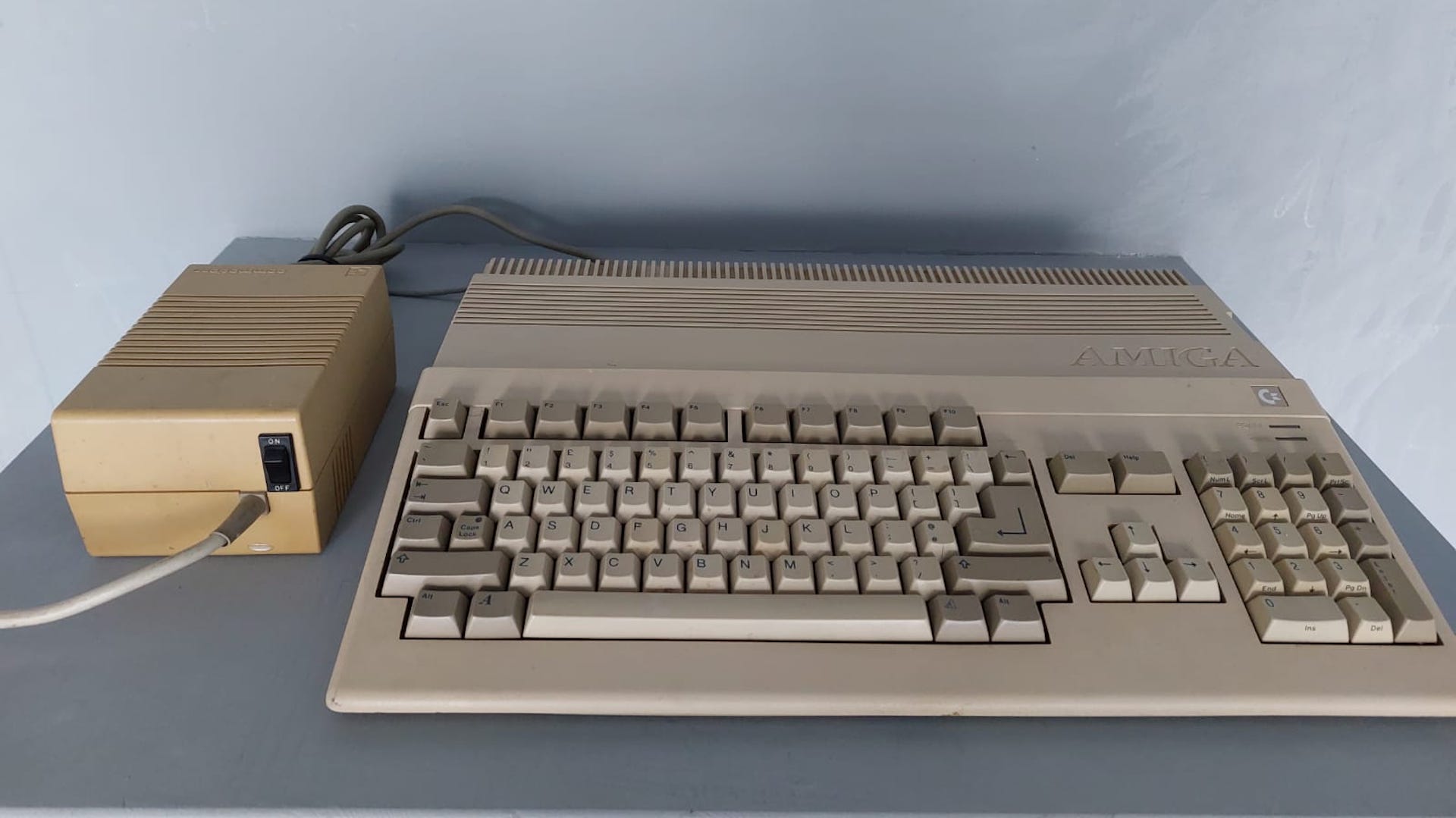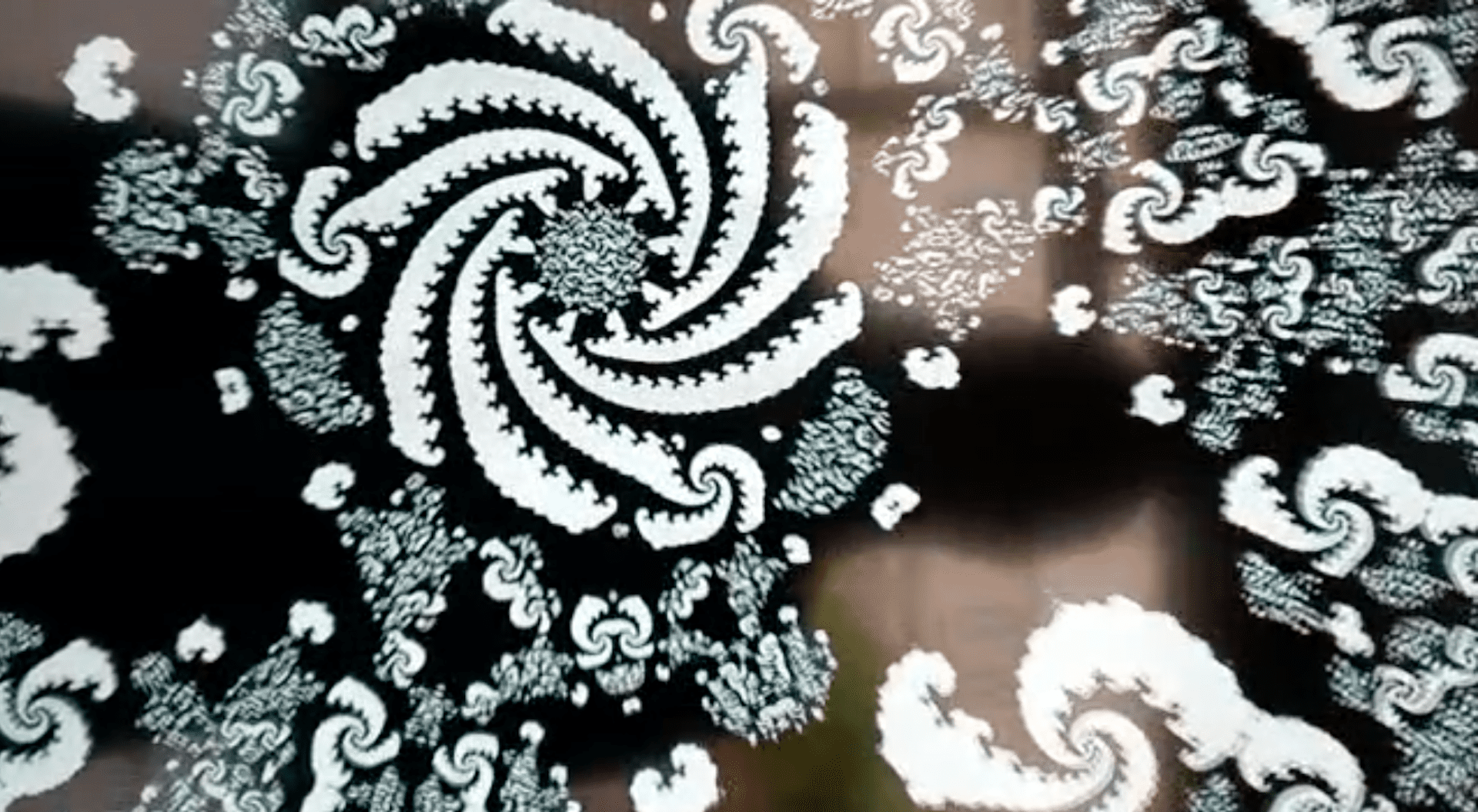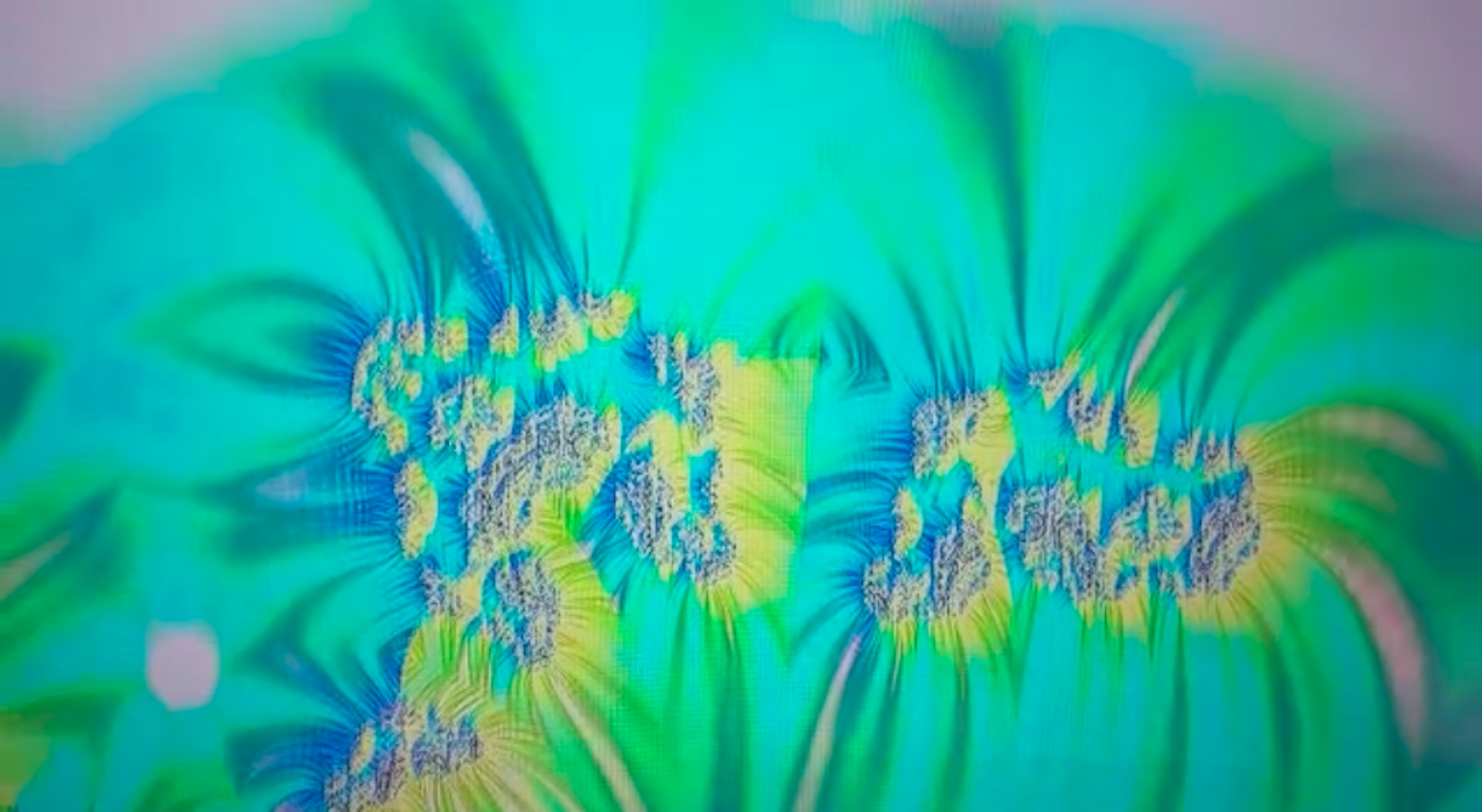Smoltech
Laura Netz
Date of the work created:
Dynamo, sound installation, 2011
Hybrids, video installation, 2018-2019
Puzzle, audio-visual installation, 2008-2018
Deep Disco, sound installation, 2021
Morphogenesis, artist book, 2017
Escape Time Hybrids, artist book, 2019
Rodney, video loop, 2020-2021
26 November – 11 December 2021
Opening: Fri 26 Nov, 7-9pm
#soundinstallation #video #curation
Curated by Laura Netz, Smoltech is an exhibition of pure-data sound works and different audio-visual, multimedia, and interactive installations by Claude Heiland-Allen (mathr).
The exhibition is presented as expressing concern about techno-surveillance capitalism and abuse of power of hyper-structures such as industrial-scale operation data centres consuming a massive amount of electricity, and server farms consisting of thousands of computers which require a large amount of power to run and to keep cool. Also, crypto mining has grown exponentially in the last few years, growing their energy consumption. In other words, cryptocurrency mining surpasses entire countries’ energy consumption, so it urges to spread awareness about the potential environmental costs of technology.
Furthermore, we are entering an age of mass extinction brought on by excesses of technology resources exploitation, when obsolescence becomes a transformative situation of the human social landscape. Economically and ecologically, e-waste presents a massive environmental catastrophe, transforming planetary geological eras and environments.
The exhibition proposes using technology in an ethical/ecological applicability, searching for a lower ecological impact, representing an alternative to Big Tech (Google, Amazon, Facebook, Microsoft, Apple). Most of these alternatives are connected to the open- source movement and also degrowth. Smoltech is one of these technological movements representing an alternative to tech development, usage, and consumption. Smoltech is a movement to reduce wasteful technology use. It promotes a long-term usage of technology, discouraging throw away culture, preventing e-waste, and developing hacker practices in media archaeology labs that collect old computers and tech for their survival.
Individuals are using their newly expanded practical freedom to act and cooperate with others in ways that improve the practised experience of democracy, justice and development of a critical culture and community, where collaboration and self-organisation are shared across both business and free software / open hardware, as declared by Yochai Benkler. The degrowth movement proposes an autonomous perspective towards capitalism and the globalised world through artivism, care revolution and climate justice based on the environmental movement and radical ecology democracy, proposing food sovereignty practices that serve as a model for Technological Sovereignty. In addition, degrowth practices apply the principles of free software movement and the commons’ policies towards a solidarity economy and unconditional basic income.
The artist works using free software and develops his programs to create beautiful fractals, digital creations and new media environments. Claude’s works show the relationship between technology and creativity using computing to challenge conservative positions of technological corporations because of the potential for social change that new/old media and open source have. The audiences will gain an aesthetical experience within the exhibition by combining computer science, performance art, music, technology, fractals, maths, and software programming.
Opened as part of November 2021’s Last Fridays Folkestone event.
Friday 26 November 2021, 7pm
Artist talk with Claude Heiland-Allen (mathr).
Saturday 11 December 2021, 5pm
Laura Netz is a curator, artist, and researcher. Currently, she is an MPhil student at CRiSAP – UAL, where studies the new tendencies in curatorial practices in sonic arts. In 2006, she graduated in Art History (University of Barcelona). Consequently, studies at Master in Cultural Practices and New Media Art (University Ramon Llull). In 2009, establishes in London where attends the Curating course (Central Saint Martins, UAL). One year after, she was granted to study at MAH Media Art Histories (Donau University, Krems, Austria). In 2011, attends the professional course about New Media Curating, led by Beryl Graham (University of Sunderland). Interested in sound art, science, technology and digital media, she is an active participant in hacking culture.
Claude Heiland-Allen (mathr) is an artist that works primarily with computer software. His work often deals with the complex emergent behaviour of simple systems, and by their nature these can require many calculations to be performed to reach the end result of an image, a sound, or a video. He aspires to make pieces that use fewer resources, and work on many machines, including old machines, whilst exploring the emergent behaviour of computational systems.


